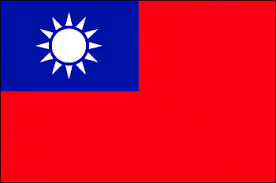 Inside U.S. Trade reports that Taiwan is taking steps to develop a system of patent linkage, which would prevent generic firms from gaining marketing approval for their products while originator products are still under patent. The country wants to join the Trans Pacific Partnership at a later date, and it expects that patent linkage will be one of the requirements for countries wishing to acceded to the Agreement.
Inside U.S. Trade reports that Taiwan is taking steps to develop a system of patent linkage, which would prevent generic firms from gaining marketing approval for their products while originator products are still under patent. The country wants to join the Trans Pacific Partnership at a later date, and it expects that patent linkage will be one of the requirements for countries wishing to acceded to the Agreement.
Says Inside U.S. Trade: “One industry source said the U.S. has privately encouraged Taiwan to undertake this exercise, and stressed that [the Korea-US Trade Agreement] is an indicator of what it might be expected in TPP.”
U.S. industry and government have been trying for a long time to prod Taiwan into implementing a system of patent linkage. A 2007 diplomatic cable from US State Department officials to the Secretary of State, titled: “Taiwan Pharma: Patent Linkage Going Nowhere” had this to say on the matter:
The U.S. and the Taipei American Chamber of Commerce have pushed the Taiwan authorities to implement a U.S.-style patent-linkage system that would continue to allow generic-drug testing before the original drug’s patent expiration, but would define a time period before which generic-drug manufacturers cannot use patented data for research or production trials; would enforce a “data-exclusivity” period before which generics cannot use safety and efficacy data provided by patent-holders to regulatory agencies; would require generic-drug manufacturers to notify patent-holders before using the patent-holder’s intellectual property for research or trials; and would prevent generic-drug makers from licensing a generic form of a patented drug and getting a reimbursement price while the original patent is still valid. However, the authorities responsible for drafting amendments to Taiwan’s laws to implement patent linkage do not see a need for such a system in Taiwan and believe that the Taiwan judicial system is adequate for protecting original-drug manufacturers’ IPR. Therefore, progress toward this reform would require sustained U.S. engagement with Taiwan authorities.
More recently, a Chamber of Commerce White Paper claimed that the lack of linkage “raises doubts as to whether Taiwan meets its obligations” under the TRIPS Agreement, and recommends that the country adopt a system similar to that established by the Hatch-Waxman Act in the U.S. This year, PhRMA asked USTR to list Taiwan on the Special 301 Watch List, claiming that “at least 65 patent-infringing drugs were approved in Taiwan.”
Taiwan has expressed interest in eventually joining the TPP negotiations. Recently AmbassadorNAME told the Washington Times that Tawian’s large economy made it an important regional player – so that TPP negotiations are not “complete” without it. He added: “Hopefully we can be invited to the next round of negotiations.”
Last month, Taiwan Today reported that “To step up preparedness for Taiwan’s TPP accession, a Cabinet-level international trade and economic strategy task force has been established to bring local regulations in line with the global standards. These include addressing issues of concern to [The American Chamber of Commerce] such as intellectual property rights protection, medical devices and pharmaceuticals.




